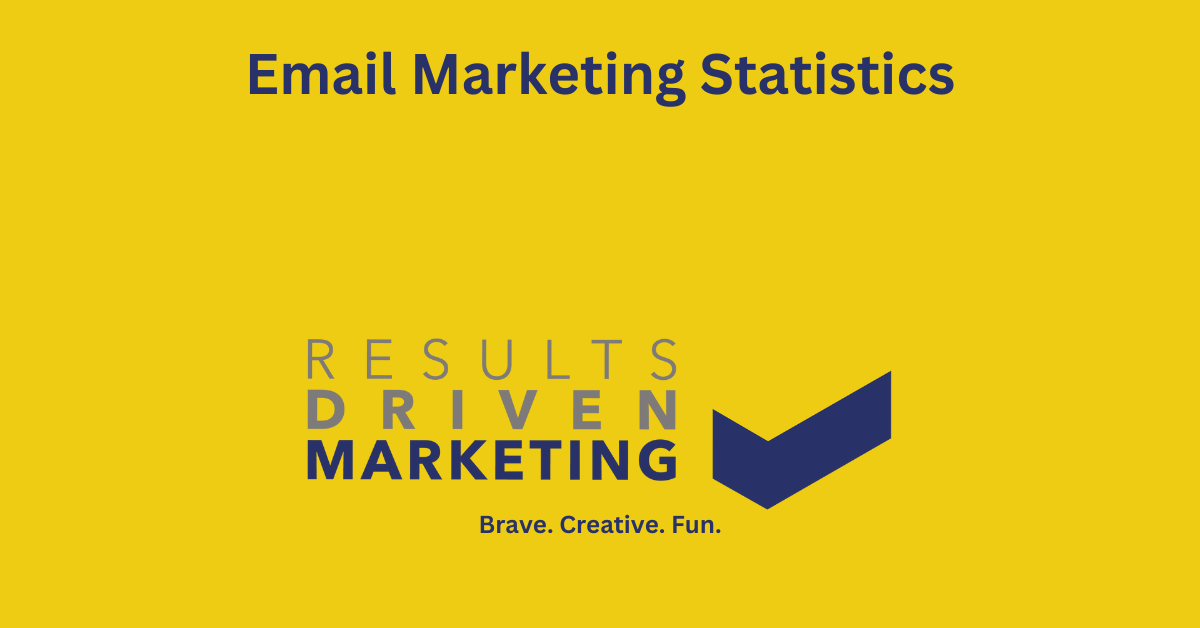
Email Marketing Statistics
Email marketing statistics play a crucial role in shaping the strategies of modern marketers, providing insights into consumer behaviour, engagement rates, and the overall effectiveness of email campaigns.
Where email continues to be a pivotal channel for communication, understanding these statistics is key to crafting successful marketing strategies. Our comprehensive article delves into the latest trends, benchmarks, and significant numbers that define the current landscape of email marketing statistics.
As we explore the world of email marketing statistics, we will uncover the impact of various factors such as open rates, click-through rates, conversion rates, and the influence of mobile devices on email interactions. This information is invaluable for businesses looking to optimise their email marketing efforts and achieve better results.
Moreover, we’ll analyse how different industries leverage email marketing, the effectiveness of personalised content, and the role of automation in enhancing customer engagement. The article will also highlight the importance of segmenting email lists and tailoring messages to meet the unique preferences and needs of different audience segments.
Furthermore, we will look at the challenges and opportunities presented by emerging trends, such as the integration of artificial intelligence in the email marketing statistics and the growing emphasis on privacy and data protection.
Overall Usage and Growth of Email Marketing Statistics
Email marketing has consistently been one of the most popular and effective forms of digital marketing. As businesses of all sizes and industries have adopted digital strategies, email marketing has emerged as a key channel for reaching customers directly, delivering personalised content, and driving conversions.
Usage of Email Marketing
As of 2021, there were over 4 billion email users worldwide, according to Statista, and this figure is expected to grow to 4.6 billion by 2025. Businesses worldwide have recognised the potential reach of email marketing, with approximately 81% of small businesses relying on email as their primary customer acquisition channel, and 80% for retention, according to Emarsys.
In addition to small businesses, many large corporations also leverage email marketing as a core component of their marketing strategy. These include companies across a variety of industries, including retail, tech, hospitality, and more. As such, it’s reasonable to estimate that millions of businesses globally are using the email marketing statistics database in some capacity.
Growth of Email Marketing
Over the past decade, the usage of email marketing statistics has seen consistent growth. According to a report by Radicati Group, the number of email users worldwide has grown from 2.5 billion in 2012 to over 4 billion in 2021. This growth in email users naturally translates into a larger potential audience for an email marketing database.
Simultaneously, the sophistication and features of the email marketing statistics platforms have improved dramatically. Automation, personalisation, and segmentation tools have made it easier for businesses to create targeted, effective email marketing statistics campaigns.
The growth in adoption of these technologies suggests a corresponding growth in the overall usage of email marketing statistics. A survey by Email monday suggests that 51% of companies were using email automation in 2020, up from 43% in 2017.
Volume of Marketing Emails Sent
The number of marketing emails sent annually has also seen consistent growth. According to Statista, approximately 306.4 billion emails were sent and received each day in 2020, and this figure is expected to increase to over 376.4 billion daily emails by 2025.
While not all of these emails are marketing emails, a substantial proportion are. In fact, marketing emails make up a significant portion of the total email traffic, with Radicati Group reporting that in 2019, 293 billion marketing emails were sent each day.
Keep in mind, however, that as the number of marketing emails sent increases, so too does the importance of ensuring these emails are targeted and relevant. Consumers are more likely to engage with marketing emails that are personalised and relevant to their interests, making this a key consideration for businesses looking to leverage an email marketing database effectively.
Decoding Email Marketing: Understanding Open Rates Across Industries and Influencing Factors
Email marketing remains a potent force in the digital marketing landscape, boasting impressive reach, engagement, and return on investment. A crucial metric that gauges the success of email campaigns is the ‘open rate’, a measure of how many recipients open the emails they receive.
Understanding open rates across various industries, along with the factors that influence them—such as the day of the week, time of day, and subject line—can help marketers refine their strategies and optimise their campaigns.
Average Open Rates Across Industries:
A ‘good’ open rate can vary significantly across industries. According to data collected by Mailchimp in 2020, the average open rate across all industries was approximately 21.33%.
However, specific industries saw higher or lower averages. For example, the hobbies sector enjoyed the highest open rate of 27.35%, followed by government at 26.52%, and arts and artists at 26.03%. Conversely, the daily deals/ e-coupons sector had the lowest open rate at 15.06%.
These variations reflect the audience’s receptivity and interest in email communications within specific industries. Marketers must understand these industry benchmarks to set realistic goals for their campaigns.
Influence of Day of the Week:
The day of the week can substantially impact the open rates of marketing emails. While there is no universal ‘best day’ to send emails—since this can vary based on the target audience and their habits—GetResponse’s 2019 study showed Tuesday had the highest open rate (19.9%) and click-through rate (CTR). However, Saturday had the least competition, meaning emails sent on that day faced less competition in recipients’ inboxes.
Influence of Time of Day:
The timing of email delivery also plays a crucial role in determining open rates. According to a study by Campaign Monitor, the optimal time to send emails is at around 11 AM in the recipient’s local time zone.
This is typically the time when most people are checking their emails. However, it’s worth noting that optimal send times can vary based on the audience and their specific routines.
Role of the Subject Line:
The subject line acts as the ‘first impression’ of your email, influencing whether the recipient opens it. CoSchedule’s analysis of over 35 million emails found that the most successful email subject lines were between 17 to 24 characters long.
Personalised subject lines that incorporate the recipient’s name or relevant details can significantly increase open rates. Moreover, subject lines that create urgency, curiosity, or offer value also tend to have higher open rates.
Conclusion:
Understanding email open rates and the factors that influence them is crucial to the success of email marketing statistics campaigns. While the averages and statistics discussed here provide a helpful starting point, it’s essential for each business to test different strategies to discover what works best for their unique audience.
Regularly reviewing and tweaking your email marketing strategy in response to open rate data can significantly enhance the effectiveness of your campaigns, driving better engagement and ultimately, higher conversions.
Who are We?
Dedicated to lead generation, Results Driven Marketing provides myriad services SMEs can trust to deliver results.
Our marketing lists are guaranteed accurate to industry high standards, and GDPR compliant and our experience team means that if you are looking to buy data, they make them totally bespoke and highly relevant whether you are looking for email lists, direct mailing lists , international data or telemarketing lists
Our email marketing software is highly rated. Responder provides the automation tools you need to put your marketing on autopilot.
We also supply email marketing solutions with our email marketing platform.
Have a look a what our happy clients have to say about us on our testimonials page
Call us today on 0191 406 6399 to discuss your specific needs.
Results Driven Marketing
info@rdmarketing.co.uk
Contact Us
0191 406 6399





